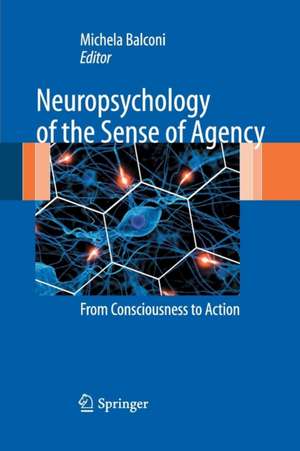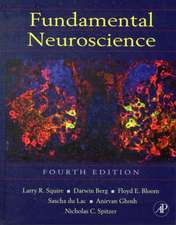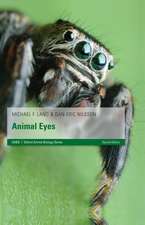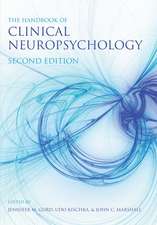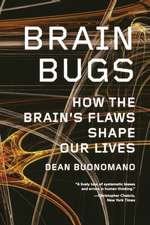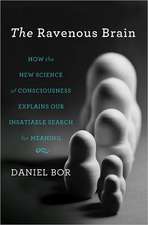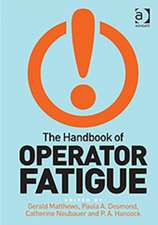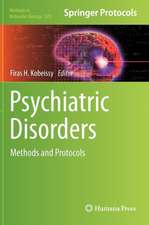Neuropsychology of the Sense of Agency: From Consciousness to Action
Editat de Michela Balconien Limba Engleză Paperback – 11 noi 2014
| Toate formatele și edițiile | Preț | Express |
|---|---|---|
| Paperback (1) | 636.30 lei 6-8 săpt. | |
| Springer – 11 noi 2014 | 636.30 lei 6-8 săpt. | |
| Hardback (2) | 644.95 lei 3-5 săpt. | |
| Springer – 30 iun 2010 | 644.95 lei 3-5 săpt. | |
| Nova Science Publishers Inc – 28 mar 2010 | 688.92 lei 3-5 săpt. |
Preț: 636.30 lei
Preț vechi: 748.59 lei
-15% Nou
Puncte Express: 954
Preț estimativ în valută:
121.76€ • 132.67$ • 102.60£
121.76€ • 132.67$ • 102.60£
Carte tipărită la comandă
Livrare economică 23 aprilie-07 mai
Preluare comenzi: 021 569.72.76
Specificații
ISBN-13: 9788847055742
ISBN-10: 8847055741
Pagini: 212
Ilustrații: XV, 192 p.
Dimensiuni: 155 x 235 x 17 mm
Greutate: 0.3 kg
Ediția:2010
Editura: Springer
Colecția Springer
Locul publicării:Milano, Italy
ISBN-10: 8847055741
Pagini: 212
Ilustrații: XV, 192 p.
Dimensiuni: 155 x 235 x 17 mm
Greutate: 0.3 kg
Ediția:2010
Editura: Springer
Colecția Springer
Locul publicării:Milano, Italy
Public țintă
ResearchCuprins
Cognition, Consciousness and Agency.- The Sense of Agency in Psychology and Neuropsychology.- Affordances and the Sense of Joint Agency.- Brain, Agency and Self-agency: Neuropsychological Contributions to the Development of the Sense of Agency.- The Neuropsychology of Senses of Agency: Theoretical and Empirical Contributions.- Functional Anatomy of the Sense of Agency: Past Evidence and Future Driections.- The Monitoring of Experience and Agency in Daily Life: A Study with Italian Adolescents.- Agency and Inter-agency, Action and Joint Action: Theoretical and Neuropsychological Evidence.- Clinical Aspects Associated with Disruption of the Sense of Agency.- Disruption of the Sense of Agency: From Perception to Self-knowldge.- Disturbances of the Sense of Agency in Schizophrenia.- Looking for Outcomes: The Experience of Control and Sense of Agency in Obsessive-compulsive Behaviors.- Body and Self-awareness: Functional and Dysfunctional Mechanisms.
Textul de pe ultima copertă
The complex issues of agency and self-agency have been examined by researchers in the related fields of psychology and neuropsychology. This volume approaches the cognitive and neuropsychological correlates as two sides of the same coin, with the aim of establishing a correspondence between the hardware (cerebral processes) and software (cognitive processes) of the representation of agency. All living systems self-regulate, and within any living system - whether it is as small as a cell or a complete plant or animal - there must be communication between its many parts. In addition, a prerequisite for organisms to act is an ability to distinguish between self and other. In humans, this ability may be either learned or comprise an inherent part of the process of action. The predominant account explaining the sense of agency of our own actions is the “central monitoring theory” or “comparator model” which postulates the monitoring of central and peripheral signals arising as a consequence of the execution of an action. Alternative perspectives include simulation theory. These models, as well as the contribution of body representation for agency, are explored here, taking into account the significance of proprioceptive feedback for self-agent attribution. Finally, the neural correlates of action and agent representation are discussed in the context of recent empirical results.
Caracteristici
Written by experts No other book has widely explored the topic from both cognitive and neuropsychological perspectives. This integrated perspective makes the contribution highly innovative and unique within this recent scientific field.
